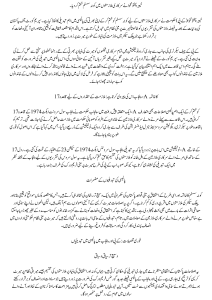Khyber Pakhtunkhwa Ends Quota System in Government Jobs
The Khyber Pakhtunkhwa (KP) government has implemented a significant change in its recruitment policy by abolishing the quota system for government jobs. This decision transitions job appointments to a purely merit-based system, following directives from the Supreme Court of Pakistan. The move aims to ensure transparency and uphold constitutional provisions that emphasize merit as the basis for public sector employment.
also read CM Punjab Launches Honhaar Scholarship ProgramSchema
A notification issued by the Chief Secretary of KP has directed all government departments to strictly comply with the new merit-based recruitment guidelines. The Supreme Court’s ruling declared that appointments made without adhering to merit would contravene the constitution, reinforcing the need for this policy shift. However, an important exception to this rule has been outlined: families of law enforcement personnel and civil servants who have been martyred in terrorist incidents will still receive compensation packages. This ensures that the families of those who have sacrificed their lives in the line of duty are not left unsupported.
Punjab Follows Suit: Ending Rule 17-A for Job Entitlements
In a related development, the Punjab government has also introduced a significant policy reform by abolishing Rule 17-A of the Punjab Civil Servants Act, 1974. This rule had previously allowed family members of deceased government employees to secure employment within the provincial government. The amendment was formalized through a notification issued by the Secretary Regulation Services and General Administration, which stated that the rule would be removed with immediate effect.
The notification emphasized that the change was made under the authority of Section 23 of the Punjab Civil Servants Act, 1974. With the removal of Rule 17-A, the entitlement of job allocations to family members of deceased government employees has been discontinued. This marks a shift in Punjab’s approach to civil service appointments, as the province now moves toward a merit-based framework similar to KP.
Implications of the Policy Shifts
The abolition of the quota system and similar entitlement-based rules signifies a broader trend in Pakistan’s governance, aiming to ensure equal opportunities and reduce nepotism in public sector employment. While these reforms align with constitutional principles of meritocracy, they have also sparked debates about their social and economic implications. Critics argue that removing entitlement provisions may leave vulnerable families without adequate support, particularly in cases of deceased government employees. However, proponents of the changes highlight that merit-based systems are essential for fostering fairness, efficiency, and competitiveness in government institutions.
Also read Punjab CM Launches Largest School Nutrition ProgrammeSchema:
Quick Details: Policy Shifts in KP and Punjab
Broader Context
These reforms reflect an ongoing shift in Pakistan’s administrative landscape, where meritocracy is being prioritized over legacy systems like quotas and entitlement-based job allocations. Both KP and Punjab’s policy decisions underline the need for modern governance frameworks that can address evolving socioeconomic challenges while maintaining equity and fairness. Whether these changes achieve the desired outcomes or face resistance will depend on their implementation and the public’s response in the coming years.


